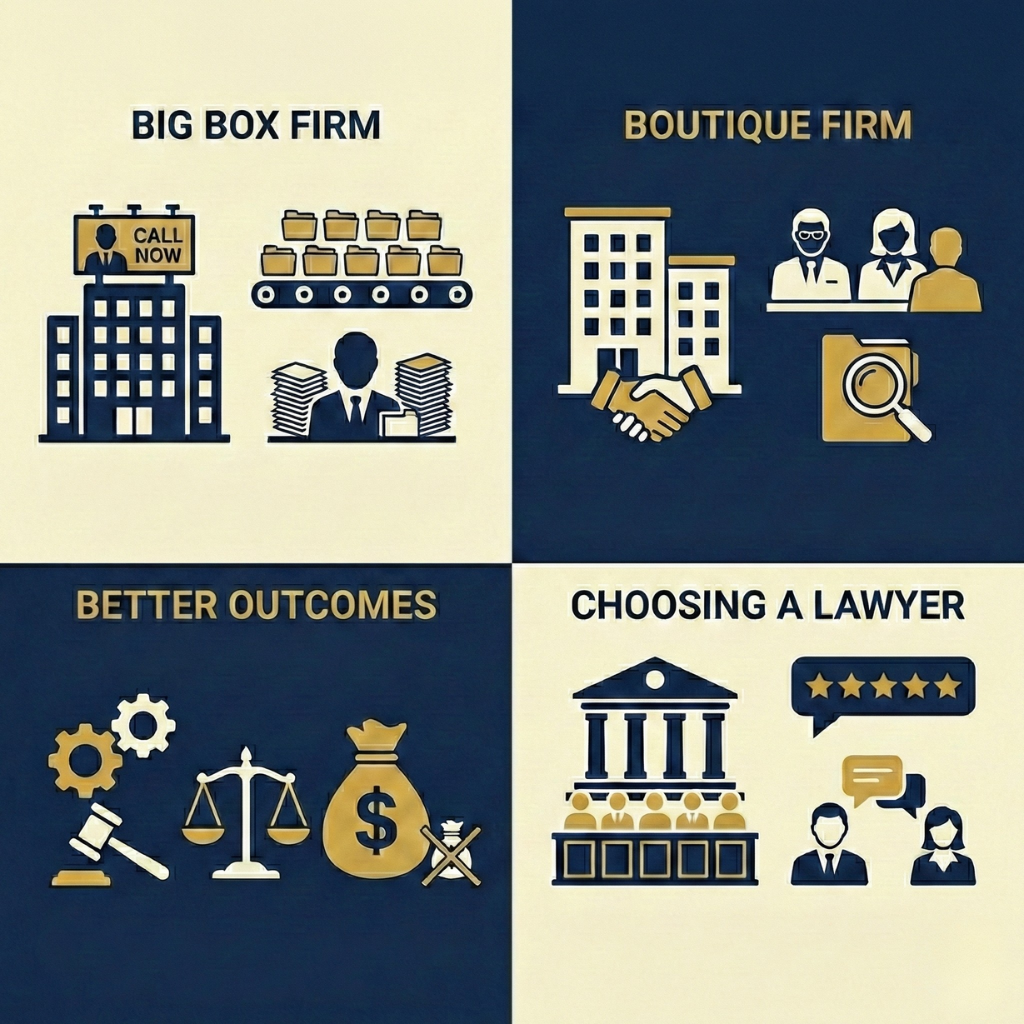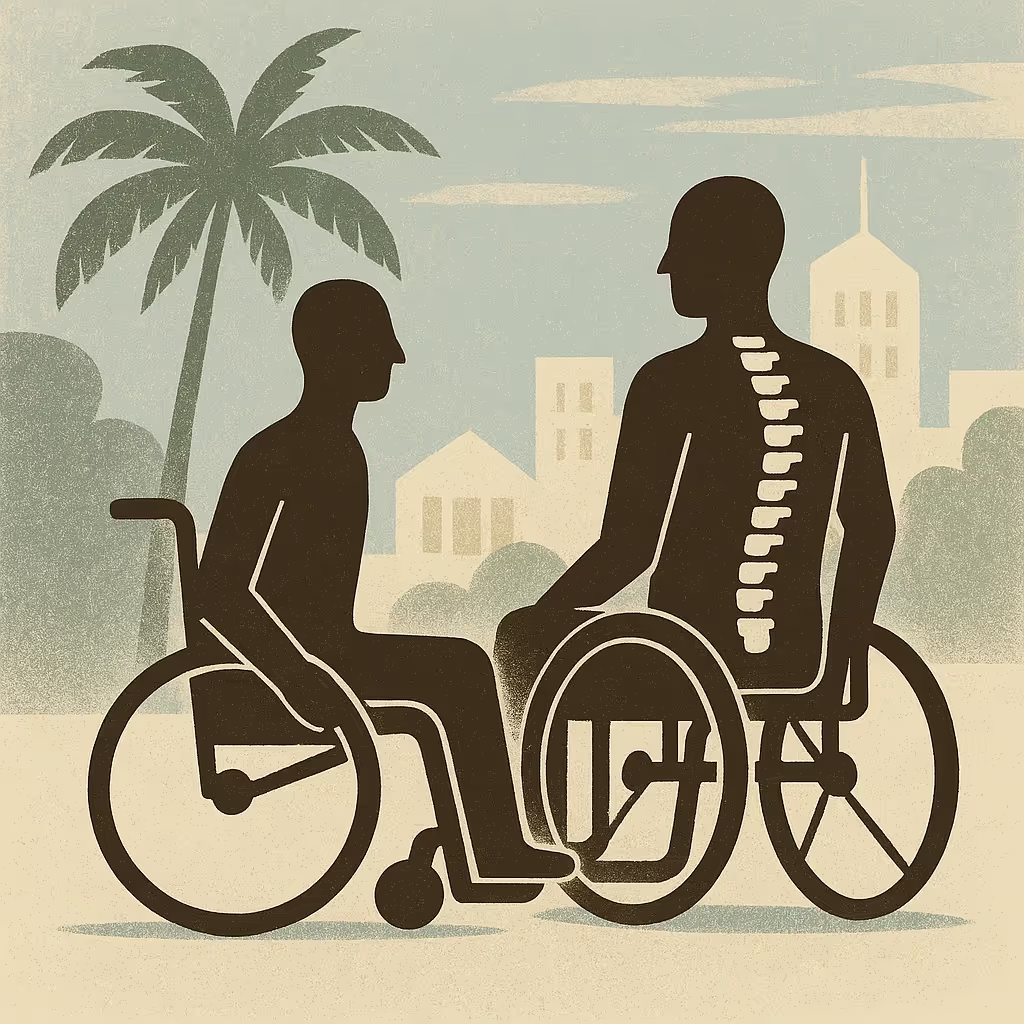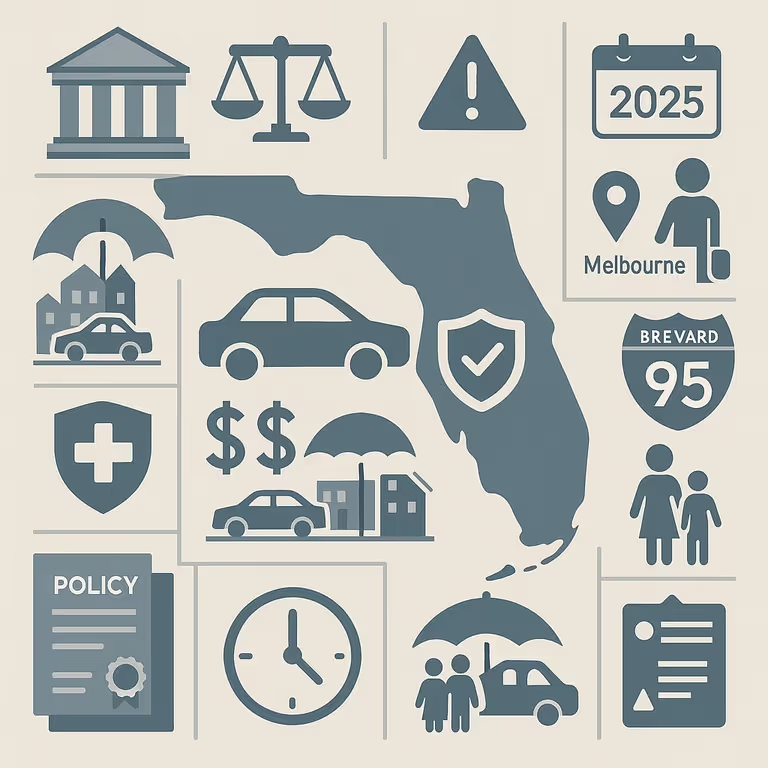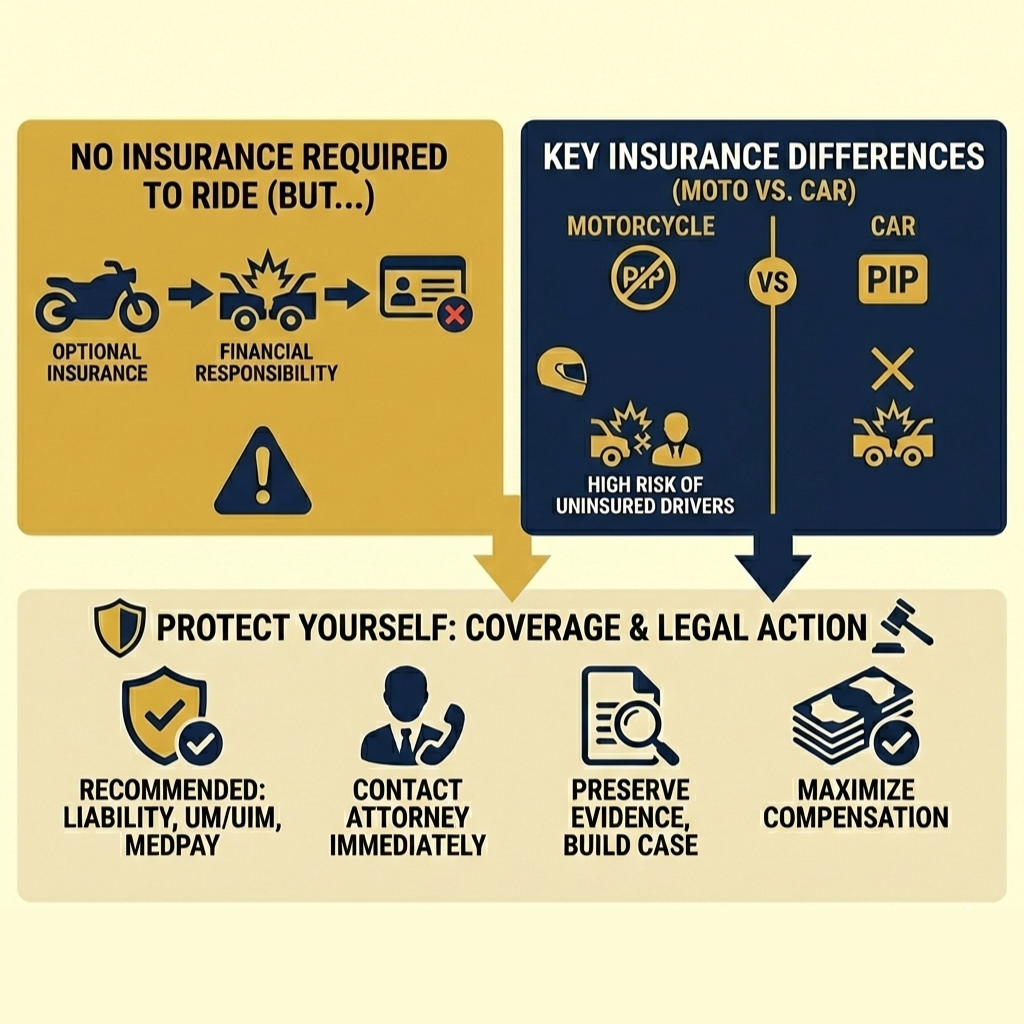Florida Pre-Existing Conditions and Personal Injury Claims: Your Rights Under the Eggshell Skull Doctrine
Florida protects people with pre-existing conditions through the eggshell skull doctrine. Learn how 2023 reforms affect personal injury claims & rights.
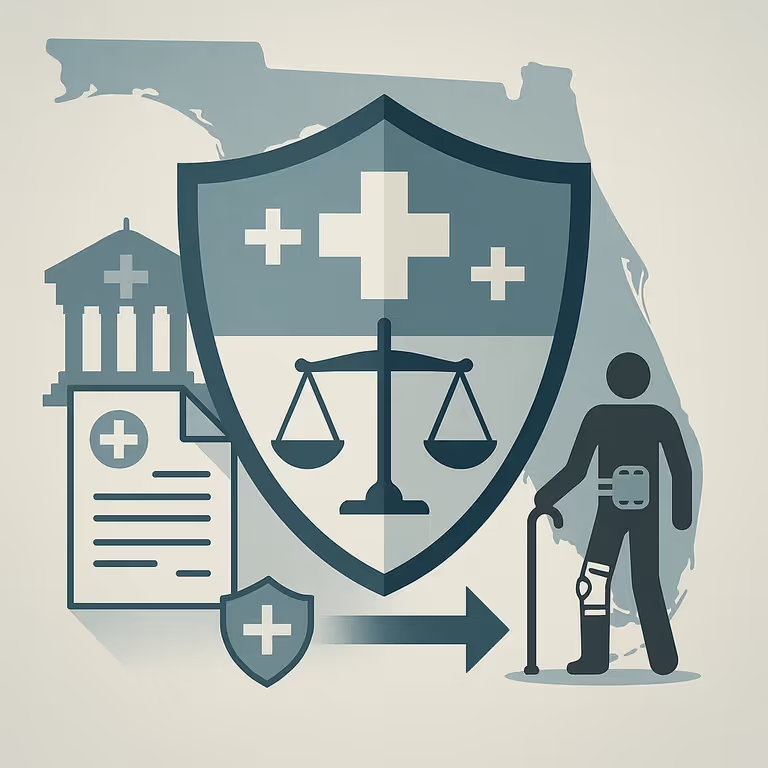
- Florida's eggshell skull doctrine ensures negligent parties are liable for the full extent of harm caused, even with pre-existing conditions.
- 2023 tort reform changes prevent any recovery if you're found more than 50% responsible for your accident.
- Strong medical evidence proving aggravation is crucial, requiring comprehensive before-and-after documentation and expert testimony.
Worried About Your Injury Case? We'll Review It - Free!
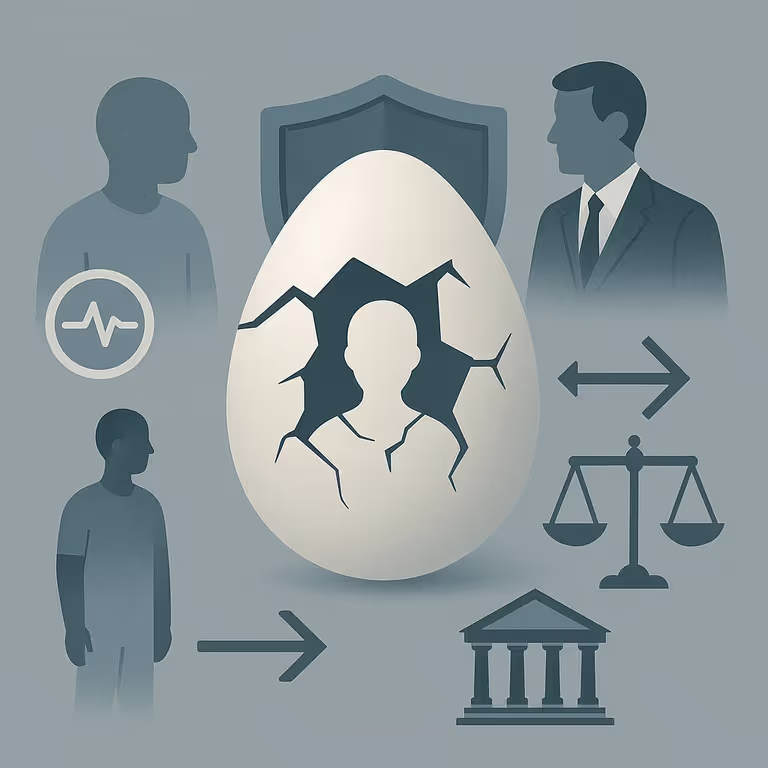

Understanding Your Legal Protection in Florida
You've been managing your chronic back pain for years, then a car accident makes it unbearable. Or perhaps you've been dealing with knee problems, and a slip and fall leaves you unable to walk without severe pain. If this sounds familiar, you're not alone, and more importantly, you're not without legal protection.
Many accident victims worry that having a pre-existing medical condition means they can't recover compensation after someone else's negligence makes their condition worse. This is a common concern, but it's based on a misunderstanding of Florida law. The truth is, Florida specifically protects people with pre-existing conditions through a well-established legal principle.
In Brevard County alone, there were 9,283 total crashes in recent years, meaning thousands of local residents face this exact situation. Whether you're dealing with worsened arthritis after a car accident on I-95, aggravated diabetes complications following a medical error, or increased pain from an old injury after a premises liability incident, Florida law recognizes your right to compensation for the additional harm caused by someone else's negligence.
At Douglas R. Beam P.A., we've been helping Melbourne and Brevard County residents navigate these complex cases since 1988. With over $1 billion in case results and nearly four decades of experience, we understand the unique challenges that pre-existing conditions present in personal injury cases. Our track record includes significant verdicts and settlements for clients whose pre-existing conditions were aggravated by accidents, proving that having a prior medical condition doesn't prevent you from obtaining fair compensation.

The Eggshell Skull Doctrine Explained
Florida follows a legal principle called the "eggshell skull" doctrine, which essentially means that if someone injures you, they must accept you as they find you, including any pre-existing conditions that make you more vulnerable to harm. This protection is crucial for anyone with existing medical conditions.
Think of it this way: if you have a weak back and someone rear-ends you at a red light, causing severe injury that wouldn't have been as serious in a person with a healthy spine, the at-fault driver is still responsible for the full extent of your injuries. They can't argue that your damages should be reduced simply because you were more susceptible to harm due to your pre-existing condition.
The Florida Supreme Court has established specific jury instructions for these cases, stating that any aggravation of an existing condition or physical defect must be considered when determining damages. What this means in practical terms is that you can recover compensation for the additional harm caused by the accident, even if that harm was more severe because of your pre-existing condition.
However, it's important to understand what this doctrine does and doesn't cover. You can only recover compensation for the additional harm caused by the accident, not for your pre-existing condition itself. For example, if you had chronic knee pain rated at a 4 out of 10 before an accident, and the accident increased that pain to an 8 out of 10, you can seek compensation for the increase from 4 to 8, not for the original pain level.
This protection exists because the law recognizes that people shouldn't be denied justice simply because they weren't in perfect health before an accident. Having a pre-existing condition doesn't give you an unfair advantage in your case. It simply ensures that you're treated fairly despite your vulnerability.
For residents throughout Central Florida, this doctrine provides essential protection. Whether you're dealing with previous injuries from military service, degenerative conditions common with age, or chronic illnesses, Florida law ensures that negligent parties can't escape responsibility for making your condition worse.

Impact of 2023 Tort Reform on Your Case
In March 2023, Florida enacted significant tort reform changes that fundamentally altered how personal injury cases are handled, and these changes have important implications for people with pre-existing conditions. Understanding these changes is crucial for anyone considering a personal injury claim.
The most significant change involves comparative negligence rules. Before 2023, Florida operated under "pure comparative negligence," meaning you could recover damages even if you were 99% at fault for an accident, though your compensation would be reduced by your percentage of fault. Now, Florida uses "modified comparative negligence," which means if you are found to be more than 50% responsible for your accident, you cannot recover any damages at all.
For people with pre-existing conditions, this change adds another layer of complexity. Insurance companies and defense attorneys may argue that your pre-existing condition somehow contributed to your accident or made you partially responsible for your injuries. For example, they might claim that your arthritis made you move more slowly, contributing to a slip and fall, or that medication for your condition impaired your driving ability in a car accident.
This 50% rule creates a harsh reality: even if someone else's negligence clearly worsened your pre-existing condition, if you're found more than 50% at fault for the underlying accident, you'll receive nothing. This makes it more critical than ever to have experienced legal representation who can effectively counter these arguments and present evidence showing that your pre-existing condition didn't cause the accident.
The 2023 reforms also changed evidence rules and how medical damages are calculated. These changes often make it more challenging to present evidence about pre-existing conditions and their aggravation, requiring more strategic legal approaches and often more expert testimony.
Additionally, the reforms affected attorney fee structures and how costs are handled in personal injury cases. This can impact the economic feasibility of pursuing certain claims, particularly those involving pre-existing conditions that may require extensive medical expert testimony to prove aggravation.
Given these changes, having an attorney with deep experience in Florida personal injury law and familiarity with the new legal landscape is essential. At Douglas R. Beam P.A., we've successfully adapted our approach to these new rules while continuing to achieve significant results for our clients, including those with complicated pre-existing condition cases.
The takeaway is clear: while Florida law still protects people with pre-existing conditions through the eggshell skull doctrine, the 2023 changes have made these cases more complex and require more sophisticated legal strategies.

Building Strong Evidence for Aggravation Claims
Successfully recovering compensation for a worsened pre-existing condition requires proving two essential elements: first, that you had a pre-existing condition, and second, that the accident made it substantially worse. This proof requires careful documentation and often expert medical testimony.
The moment after any accident, seek immediate medical attention, even if you initially think it's "just your old problem acting up." Many people with pre-existing conditions delay medical care because they assume their increased pain is simply their normal condition flaring up. This delay can seriously harm your case because insurance companies will argue that any worsening was due to the natural progression of your condition rather than the accident.
Your medical evidence needs to tell a clear before-and-after story. This includes your complete medical history documenting your pre-existing condition, your treatment patterns before the accident, and detailed records of how your condition changed after the incident. Imaging studies like X-rays, MRIs, or CT scans taken both before and after the accident can provide compelling visual evidence of aggravation.
Doctor statements about causation are crucial. You need medical professionals who can clearly explain how the accident worsened your pre-existing condition. This often requires expert medical testimony from specialists who can review your records and explain to a jury exactly how the trauma from your accident caused additional harm beyond your baseline condition.
Consistency in your treatment is vital. Gaps in medical care or inconsistent complaints about your symptoms can be used by insurance companies to argue that your condition wasn't significantly worsened by the accident. If financial concerns are preventing you from seeking necessary treatment, discuss this with your attorney immediately, as there may be options to address medical expenses during your case.
Documentation should include not just medical records, but also personal documentation of how your daily life has changed since the accident. Keep a pain diary noting your symptoms, limitations, and how they differ from your pre-accident baseline. Witness testimony from family members, friends, or coworkers who can describe the differences they've observed in your condition and capabilities can be powerful evidence.
Remember that you have only two years from the date of your accident to file a personal injury lawsuit in Florida. This statute of limitations applies regardless of whether you have pre-existing conditions, but these cases often require more time to properly develop the necessary medical evidence and expert testimony.
At Douglas R. Beam P.A., we understand that building a strong pre-existing condition case requires significant resources and expertise. Our experience with hundreds of these cases has taught us which medical experts provide the most credible testimony, how to efficiently gather the necessary documentation, and how to present complex medical evidence in ways that juries can understand and find compelling.

Navigating Settlement Negotiations Successfully
Settlement negotiations involving pre-existing conditions typically face more scrutiny from insurance companies and often take longer to resolve than standard personal injury cases. Understanding this process can help set realistic expectations for your case.
Insurance companies frequently employ specific strategies to minimize settlements when pre-existing conditions are involved. Their primary argument is usually that your current symptoms are simply the natural progression of your pre-existing condition rather than the result of the accident. They may hire their own medical experts to review your records and argue that your increased pain or limitations would have occurred regardless of the accident.
Defense attorneys often try to use a concept called "apportionment," attempting to separate what percentage of your current condition is due to the pre-existing problem versus what's attributable to the accident. They may argue, for example, that only 20% of your current back pain is from the car accident while 80% would have existed anyway due to your degenerative disc disease. Experienced attorneys know how to counter these arguments with proper medical evidence and expert testimony.
The timeline for resolving these cases is typically longer than standard personal injury claims. Building the necessary medical foundation to prove aggravation often requires additional medical examinations, records from multiple healthcare providers, and expert witness preparation. This process can take months or even years, particularly if your condition needs time to stabilize so doctors can provide definitive opinions about permanent aggravation.
Local experience matters significantly in these negotiations. Insurance adjusters and defense attorneys in the Melbourne and Brevard County area are familiar with local medical providers, and having attorneys who understand these relationships and the local legal landscape can be advantageous. Our decades of experience in Brevard County courts and with local medical experts has proven invaluable in achieving successful outcomes for clients with pre-existing conditions.
Settlement values in pre-existing condition cases vary tremendously based on the specific medical evidence, the degree of aggravation, and how effectively your legal team can present your case. While past results don't guarantee future outcomes, Douglas R. Beam P.A. has achieved significant settlements and verdicts for clients with aggravated pre-existing conditions, including multi-million dollar recoveries in complex cases.
Don't be discouraged if initial settlement offers seem low or if the insurance company initially denies that the accident worsened your condition. These are common negotiating tactics. With proper legal representation and strong medical evidence, many pre-existing condition cases ultimately result in fair compensation that accounts for the full extent of accident-related aggravation.
Common Questions and Legal Protections
Can I still get compensation if I was already seeing a doctor for my condition before the accident?
Absolutely. In fact, having ongoing treatment for your pre-existing condition before the accident can actually strengthen your case. Your medical records establish a clear baseline of your condition, symptoms, and functional limitations before the accident occurred. This documentation helps prove that your current increased symptoms and limitations are due to the accident rather than the natural progression of your condition. The key is showing that your condition significantly worsened after the accident beyond what your doctors expected from the normal course of your pre-existing condition.
What if my pre-existing condition wasn't diagnosed until after the accident?
Florida's eggshell skull doctrine protects people with undiscovered pre-existing conditions just as much as those with known conditions. Many people have underlying conditions like early-stage arthritis, disc problems, or other issues that haven't yet caused noticeable symptoms. When an accident occurs, these "silent" conditions can be aggravated and suddenly become symptomatic. The important thing is obtaining thorough medical examinations after your accident to properly diagnose both new injuries and the aggravation of previously undiagnosed conditions.
How much can I recover if I had a pre-existing condition?
Compensation in pre-existing condition cases is based on the additional harm caused by the accident, not the pre-existing condition itself. There's no set formula, as each case depends on specific factors like the severity of your original condition, how much the accident worsened it, your medical expenses, lost wages, and pain and suffering related to the aggravation. Some clients with significantly aggravated pre-existing conditions have recovered hundreds of thousands or even millions of dollars when the accident caused substantial additional harm requiring extensive treatment or permanent disability.
Will the insurance company find out about my medical history?
Yes, medical records are typically discoverable in personal injury cases. However, having a pre-existing condition doesn't disqualify you from compensation. It's actually expected that your complete medical history will be reviewed. The insurance company's access to your medical records allows for a complete evaluation of your condition before and after the accident, which is necessary to prove the aggravation. Attempting to hide your medical history would only hurt your case and potentially lead to a denial of your claim.
How long do I have to file a claim with a pre-existing condition?
Florida's two-year statute of limitations for personal injury claims applies to all cases, including those involving pre-existing conditions. However, don't wait until the deadline approaches to seek legal help. Pre-existing condition cases require more time to develop proper medical evidence, obtain expert opinions, and build a compelling case. The sooner you start the process, the better your attorney can document the progression of your condition and gather necessary evidence while it's still fresh and available.
What if the accident was partially my fault and I have a pre-existing condition?
Under Florida's 2023 tort reform changes, if you're found to be more than 50% at fault for your accident, you cannot recover any damages, regardless of whether you have a pre-existing condition that was aggravated. However, if you're found to be 50% or less at fault, you can still recover compensation, though it will be reduced by your percentage of fault. For example, if you're 30% at fault for a car accident that aggravated your back condition, and your total damages are $100,000, you would receive $70,000. The key is proving that your pre-existing condition didn't contribute to causing the accident itself.
Key Takeaways
- Florida's eggshell skull doctrine protects people with pre-existing conditions, ensuring that negligent parties are responsible for the full extent of harm they cause, even when that harm is more severe due to existing vulnerabilities.
- 2023 tort reform changes significantly affect how fault is determined, with the new rule preventing any recovery if you're found more than 50% responsible for your accident.
- Strong medical evidence is crucial for proving aggravation, requiring comprehensive documentation of your condition before and after the accident, along with expert medical testimony.
- Experienced legal representation is essential given the complexity of these cases and the sophisticated strategies insurance companies use to minimize settlements.
Having a pre-existing condition doesn't prevent you from recovering fair compensation when someone else's negligence makes it worse. Florida law specifically protects people in your situation, recognizing that you shouldn't be denied justice simply because you weren't in perfect health before an accident occurred.
The key to a successful pre-existing condition case is taking prompt action and working with attorneys who understand both the medical and legal complexities involved. These cases require more time to develop proper evidence, more resources to obtain expert testimony, and more skill to effectively counter insurance company arguments that attempt to blame your symptoms on your original condition rather than the accident.
Don't let concerns about your pre-existing condition prevent you from seeking the compensation you deserve. With proper legal representation and strong medical evidence, many clients with aggravated pre-existing conditions achieve significant recoveries that help them manage their worsened conditions and move forward with their lives.
Contact Douglas R. Beam P.A. for a free consultation about your pre-existing condition case. Our Melbourne team has been helping Brevard County residents with complex personal injury cases since 1988, achieving over $1 billion in results for our clients. Call (321) 723-6591 today.
This article provides general information and is not a substitute for legal advice. Laws can change, and the details of your situation matter. For personalized guidance, please contact a qualified Florida personal injury attorney.
Not Sure What To Do Next? We Can Help – Fast & Free.
Worried About Your Injury Case?
We'll Review It - Free
Don’t miss an article
Florida law, local insights, and the occasional dog pic.
Delivered straight to your inbox.
More articles
Browse all articlesFree Case Review
Get a complimentary review of your case

.webp)


.png)


